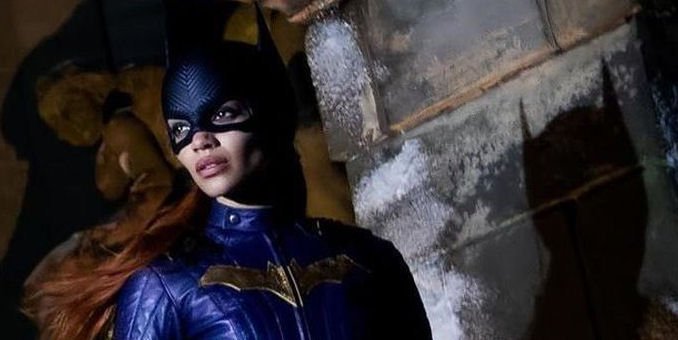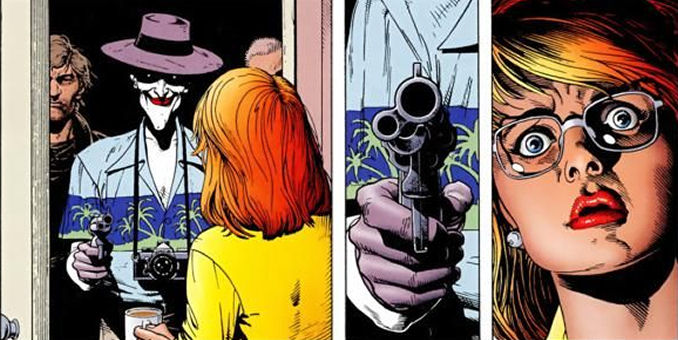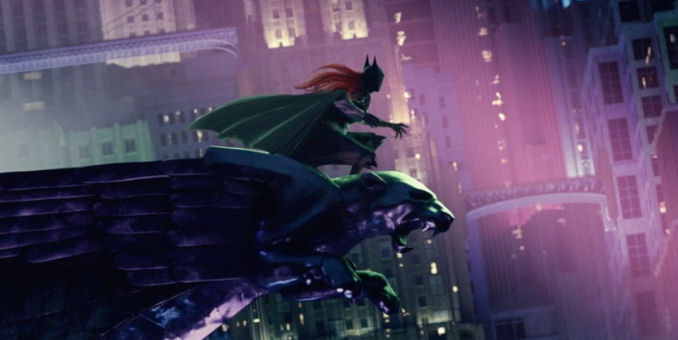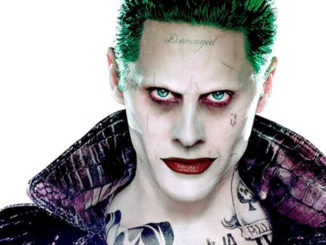
Yesterday came news that Warner Brothers had decided to shelve its upcoming comic-book film Batgirl, giving it neither a theatrical or streaming release. The report sent shock-waves through both the geek fan and Hollywood filmmaking communities with its unprecedented move to casually disregard the work of of hundreds of people on the project over the last two years. And it is yet another move from the studio across multiple executive regimes that is leaving a bad taste in many fans’ mouths.
Cancellation

Batgirl had completed principal photography at the end of last March and was reportedly moving steadily through its post-production phase when the hammer fell on it yesterday. The film was one of a number of projects in Warner Brothers executive in charge of DC Entertainment Walter Hamada’s plans to make a number of mid-range films featuring DC Comics character such as Batgirl that would appear directly on the streaming service HBO Max. It represented a $70-90 million cost to the studio, and it seemed inconceivable to nearly everyone that a studio would just outright scrap the film without somehow trying to recoup at least some of its investment.
As Hollywood tried to grapple with the logic for the shelving of the film, rumors began to circulate online that Batgirl had been eyed for a possible theatrical release but was running into some negative reaction at test screenings. Warners released a statement confirming the original reporting, stating “The decision to not release Batgirl reflects our leadership’s strategic shift as it relates to the DC universe and HBO Max. Leslie Grace is an incredibly talented actor and this decision is not a reflection of her performance.”
This realignment of the studio’s priorities comes in the wake of Warner Brothers being acquired by Discovery this past April. At the time of the acquisition, Discovery CEO David Zaslav announced that he was looking to both realign the studio’s plans for their DC Comics film adaptations as part of an overall drive to trim $3 billion in expenditures. In the wake of the Batgirl shelving, the Hollywood Reporter would state from their sources that Discovery acted because it was felt that the film did not “have the spectacle that audiences have come to expect from DC fare.”
Reasoning

But why would the studio just shelve the film, effectively just setting fire to a $90 million pile of cash, instead of trying to release it in some way that could at least recoup a portion of what was spent?
Unsurprisingly, the answer lies within some of the creative accounting tricks that Hollywood bookkeepers are well known for. As Deadline reported –
[T]he filmmakers were told that it came down to a “purchase accounting” maneuver available to Warner Bros Discovery because the company has changed hands, and also changed strategy from the previous regime. This opportunity expires in mid-August, said sources, and it allows WBD to not have to carry the losses on its books at a time when the studio is trying to pare down $3 billion in debt across its divisions.
Batgirl wasn’t even the first DC Comics adaptation to get axed by Zaslav and his new regime. Earlier this year, Wonder Twins – based on the characters from the old Superfriends Saturday morning cartoon series and set to star Riverdale‘s KJ Apa and Young Sheldon‘s Isabel May as the superpowered siblings – was cancelled just weeks before shooting was to have commenced. Also slated for an HBO Max release, the film sported a $75 million price tag, putting it within the same budgetary range as Batgirl. At the time, Variety noted that “Discovery is exploring a significant overhaul of the DC Entertainment operations.”
But even with that warning it still seemed inconceivable that a studio would shelve a project that was already shot and moving through post-production. From an optics standpoint, the move looked incredibly bad as well, given Batgirl‘s Afro-Latina star Leslie Grace (In The Height) and persons of color directors Adil El Arbi and Bilall Fallah (Bad Boys For Life, Ms. Marvel). (This alone is enough to energize the racist “go woke, go broke” crowd that lurk in the scummier corners of YouTube and social media. It is galling that with their monetized videos, they may be the only ones who make any money off of this.)
It also remains to be seen what will happen to Warners Blue Beetle project, another mid-range budget, DC Comics adaptation that was initially developed as a straight-to-HBOMax project but was given an August 2023 theatrical release date last December. That film wrapped shooting on July 18th. This too features a Latino star in the lead.
Consequences

And while some may say that Zaslav is showing strong leadership by making a bold move such as this, it can be argued that it is also an incredibly risky one as it can alienate both fans and filmmakers.
Zaslav seems to be forgetting is that in Hollywood so much business is done based in part on relationships between filmmakers and studio executives. And on that front, Warners already has a somewhat tarnished reputation thanks to previous studio chief Jason Kilar’s plan in 2021 to simultaneously release the studio’s entire release slate in theaters and on HBO Max simultaneously. While they walked the plan back before the end of the year, reputational damage had already been done resulting in the studio’s biggest marquee director, Christopher Nolan, moving his next project Oppenheiner, about the father of the atomic bomb, to Universal. How many more creators are looking at what is going on right now at the studio and having reservations about bringing their next project to them?
And Zaslav could be misreading what DC fans actually want. It might be easy to look at the grosses on the superhero films that Marvel Studios is putting out and thinking that all they want is spectacle. But that would be ignoring a pair of other things that has made Marvel’s films so successful – a love and understanding of the characters and good storytelling. Many would argue that this something that has only been evident in some of the DC Comics related releases that the studio has put out over the last several years. And the continued lack of a central creative leader for the franchise similar to Kevin Feige’s role at Marvel Studios has been pointed to by many as the chief problem for Warners superhero films perhaps not rivaling the success level that Marvel is at.
It should be noted too that good storytelling and nine-digit budgeted spectacle are not necessarily the same thing. Perhaps Zaslav needs to look back just a few years to the end of 2019, when a DC Comics film made for somewhere in the vicinity of $55 and $70 million became one of the biggest hits that Warners superhero franchise ever had. No one is arguing that Batgirl would definitely have made Joker-like box office had it gone theatrical. Although with Michael Keaton in the cast for one of his two reprisals of his role as his version of Batman from the two Tim Burton-directed films from 1989 and 1992, there is certainly an anticipation for the film. (Keaton is also scheduled to appear in next year’s $200 million Flash; though that film has its own myriad issues, none the least being the legal issues with star Ezra Miller.) But Joker‘s success does demonstrate that there is an audience for films made on a smaller budget, that explore these characters and don’t necessarily have or need world- or even universe-ending stakes to them.
And while it may look good on a quarterly balance sheet, for Zaslav to be ignoring that potential, he is doing a disservice two not only the stockholders who are expecting big things out of Discovery’s takeover of Warner Brothers, but to the filmmakers he is to be working with, the fans who want to be excited about seeing their favorite four-color heroes brought to life and to the decades-long legacy of the characters with which he has been entrusted.




